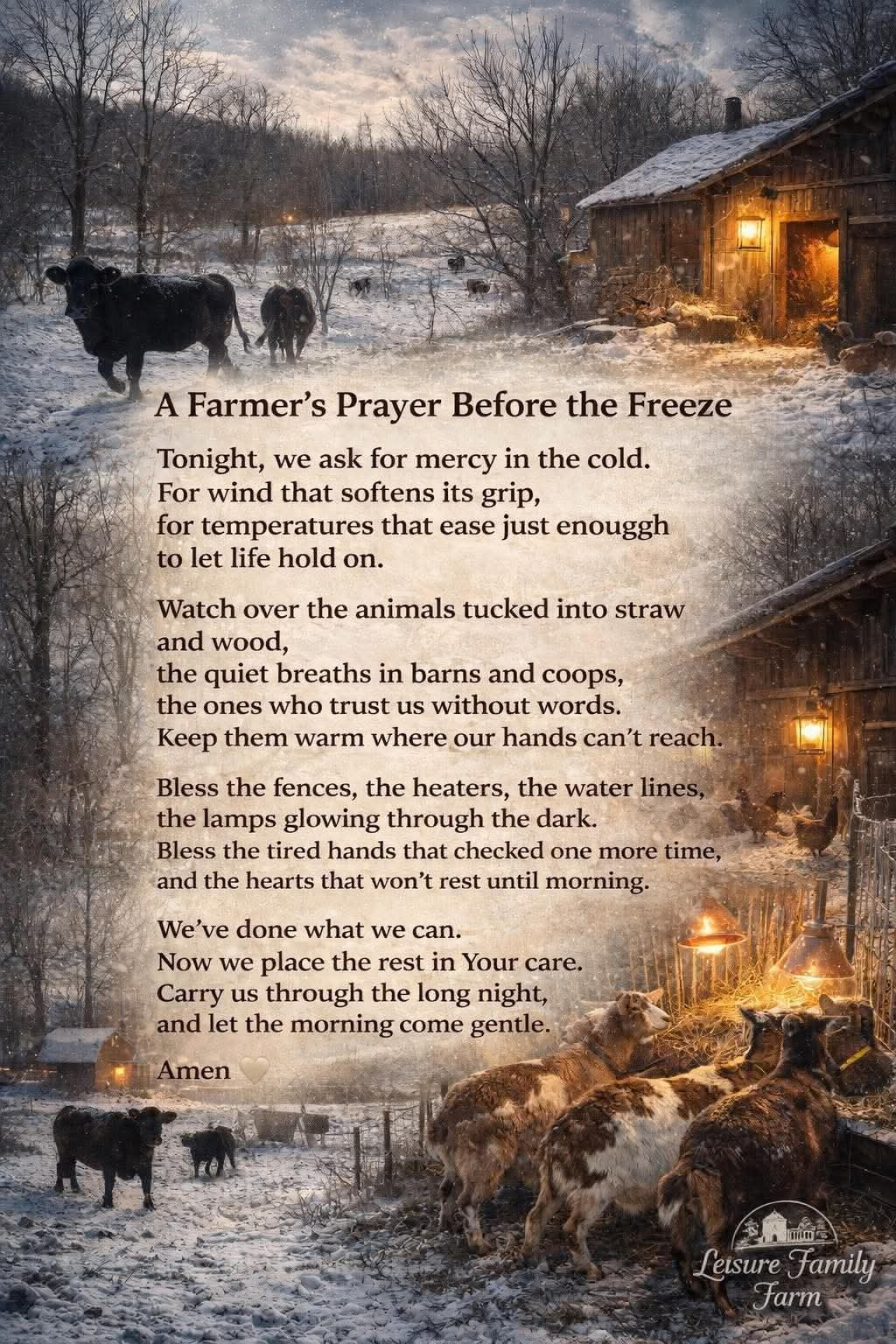Brethren, do you “know how to live in prosperity” (Phil. 4:12)? Paul did. He understood how God wants us to live in every circumstance, whether being filled or going hungry, whether having abundance or being in need, Paul was able “to do all things through Him” (Phil. 4:12-13).
We should understand this “secret” as Paul called it. Part of that secret is thankfulness, regardless of circumstance. Another part is recognition of God’s hand in the situation.
When we are in need, we naturally turn to God and ask for relief. When we are in need, we instinctually remember that there is a God, though some will curse or question Him rather than thank Him. But when we abound…
It is easy to look at where we are, and if in abundance think, “wow, I have really done well for myself.” It is easy in such days to turn to our own ways, to forget that God is there, because we believe we have all we need. Yet God warned Israel of such thinking. In Deuteronomy 8, He exhorts, “Beware that you do not forget the LORD your God by not keeping His commandments and His ordinances and His statutes which I am commanding you today…Otherwise, you may say in your heart, ‘My power and the strength of my hand made me this wealth’” (Deut. 8:11,17).
Whether in plenty or in want, we must never forget the God who created us, who cares for us, who saves us. So regardless of circumstance, remember God, who has promised to draw near if you will but draw near to Him (Jas. 4:8), and “in everything give thanks; for this is God’s will for you in Christ Jesus” (1 Thes. 5:18).
——————
Spurgeon’s Morning and Evening Devotions
Morning, February 10
"I know how to abound." Philippians 4:12
There are many who know "how to be abased" who have not learned "how to abound." When they are set upon the top of a pinnacle their heads grow dizzy, and they are ready to fall. The Christian far oftener disgraces his profession in prosperity than in adversity. It is a dangerous thing to be prosperous. The crucible of adversity is a less severe trial to the Christian than the fining-pot of prosperity. Oh, what leanness of soul and neglect of spiritual things have been brought on through the very mercies and bounties of God! Yet this is not a matter of necessity, for the apostle tells us that he knew how to abound. When he had much he knew how to use it. Abundant grace enabled him to bear abundant prosperity. When he had a full sail he was loaded with much ballast, and so floated safely. It needs more than human skill to carry the brimming cup of mortal joy with a steady hand, yet Paul had learned that skill, for he declares, "In all things I am instructed both to be full and to be hungry." It is a divine lesson to know how to be full, for the Israelites were full once, but while the flesh was yet in their mouth, the wrath of God came upon them. Many have asked for mercies that they might satisfy their own hearts' lust. Fulness of bread has often made fulness of blood, and that has brought on wantonness of spirit. When we have much of God's providential mercies, it often happens that we have but little of God's grace, and little gratitude for the bounties we have received. We are full and we forget God: satisfied with earth, we are content to do without heaven. Rest assured it is harder to know how to be full than it is to know how to be hungry- so desperate is the tendency of human nature to pride and forgetfulness of God. Take care that you ask in your prayers that God would teach you "how to be full."
"Let not the gifts Thy love bestows
Estrange our hearts from Thee."
We should understand this “secret” as Paul called it. Part of that secret is thankfulness, regardless of circumstance. Another part is recognition of God’s hand in the situation.
When we are in need, we naturally turn to God and ask for relief. When we are in need, we instinctually remember that there is a God, though some will curse or question Him rather than thank Him. But when we abound…
It is easy to look at where we are, and if in abundance think, “wow, I have really done well for myself.” It is easy in such days to turn to our own ways, to forget that God is there, because we believe we have all we need. Yet God warned Israel of such thinking. In Deuteronomy 8, He exhorts, “Beware that you do not forget the LORD your God by not keeping His commandments and His ordinances and His statutes which I am commanding you today…Otherwise, you may say in your heart, ‘My power and the strength of my hand made me this wealth’” (Deut. 8:11,17).
Whether in plenty or in want, we must never forget the God who created us, who cares for us, who saves us. So regardless of circumstance, remember God, who has promised to draw near if you will but draw near to Him (Jas. 4:8), and “in everything give thanks; for this is God’s will for you in Christ Jesus” (1 Thes. 5:18).
——————
Spurgeon’s Morning and Evening Devotions
Morning, February 10
"I know how to abound." Philippians 4:12
There are many who know "how to be abased" who have not learned "how to abound." When they are set upon the top of a pinnacle their heads grow dizzy, and they are ready to fall. The Christian far oftener disgraces his profession in prosperity than in adversity. It is a dangerous thing to be prosperous. The crucible of adversity is a less severe trial to the Christian than the fining-pot of prosperity. Oh, what leanness of soul and neglect of spiritual things have been brought on through the very mercies and bounties of God! Yet this is not a matter of necessity, for the apostle tells us that he knew how to abound. When he had much he knew how to use it. Abundant grace enabled him to bear abundant prosperity. When he had a full sail he was loaded with much ballast, and so floated safely. It needs more than human skill to carry the brimming cup of mortal joy with a steady hand, yet Paul had learned that skill, for he declares, "In all things I am instructed both to be full and to be hungry." It is a divine lesson to know how to be full, for the Israelites were full once, but while the flesh was yet in their mouth, the wrath of God came upon them. Many have asked for mercies that they might satisfy their own hearts' lust. Fulness of bread has often made fulness of blood, and that has brought on wantonness of spirit. When we have much of God's providential mercies, it often happens that we have but little of God's grace, and little gratitude for the bounties we have received. We are full and we forget God: satisfied with earth, we are content to do without heaven. Rest assured it is harder to know how to be full than it is to know how to be hungry- so desperate is the tendency of human nature to pride and forgetfulness of God. Take care that you ask in your prayers that God would teach you "how to be full."
"Let not the gifts Thy love bestows
Estrange our hearts from Thee."
Brethren, do you “know how to live in prosperity” (Phil. 4:12)? Paul did. He understood how God wants us to live in every circumstance, whether being filled or going hungry, whether having abundance or being in need, Paul was able “to do all things through Him” (Phil. 4:12-13).
We should understand this “secret” as Paul called it. Part of that secret is thankfulness, regardless of circumstance. Another part is recognition of God’s hand in the situation.
When we are in need, we naturally turn to God and ask for relief. When we are in need, we instinctually remember that there is a God, though some will curse or question Him rather than thank Him. But when we abound…
It is easy to look at where we are, and if in abundance think, “wow, I have really done well for myself.” It is easy in such days to turn to our own ways, to forget that God is there, because we believe we have all we need. Yet God warned Israel of such thinking. In Deuteronomy 8, He exhorts, “Beware that you do not forget the LORD your God by not keeping His commandments and His ordinances and His statutes which I am commanding you today…Otherwise, you may say in your heart, ‘My power and the strength of my hand made me this wealth’” (Deut. 8:11,17).
Whether in plenty or in want, we must never forget the God who created us, who cares for us, who saves us. So regardless of circumstance, remember God, who has promised to draw near if you will but draw near to Him (Jas. 4:8), and “in everything give thanks; for this is God’s will for you in Christ Jesus” (1 Thes. 5:18).
——————
Spurgeon’s Morning and Evening Devotions
Morning, February 10
"I know how to abound." Philippians 4:12
There are many who know "how to be abased" who have not learned "how to abound." When they are set upon the top of a pinnacle their heads grow dizzy, and they are ready to fall. The Christian far oftener disgraces his profession in prosperity than in adversity. It is a dangerous thing to be prosperous. The crucible of adversity is a less severe trial to the Christian than the fining-pot of prosperity. Oh, what leanness of soul and neglect of spiritual things have been brought on through the very mercies and bounties of God! Yet this is not a matter of necessity, for the apostle tells us that he knew how to abound. When he had much he knew how to use it. Abundant grace enabled him to bear abundant prosperity. When he had a full sail he was loaded with much ballast, and so floated safely. It needs more than human skill to carry the brimming cup of mortal joy with a steady hand, yet Paul had learned that skill, for he declares, "In all things I am instructed both to be full and to be hungry." It is a divine lesson to know how to be full, for the Israelites were full once, but while the flesh was yet in their mouth, the wrath of God came upon them. Many have asked for mercies that they might satisfy their own hearts' lust. Fulness of bread has often made fulness of blood, and that has brought on wantonness of spirit. When we have much of God's providential mercies, it often happens that we have but little of God's grace, and little gratitude for the bounties we have received. We are full and we forget God: satisfied with earth, we are content to do without heaven. Rest assured it is harder to know how to be full than it is to know how to be hungry- so desperate is the tendency of human nature to pride and forgetfulness of God. Take care that you ask in your prayers that God would teach you "how to be full."
"Let not the gifts Thy love bestows
Estrange our hearts from Thee."








